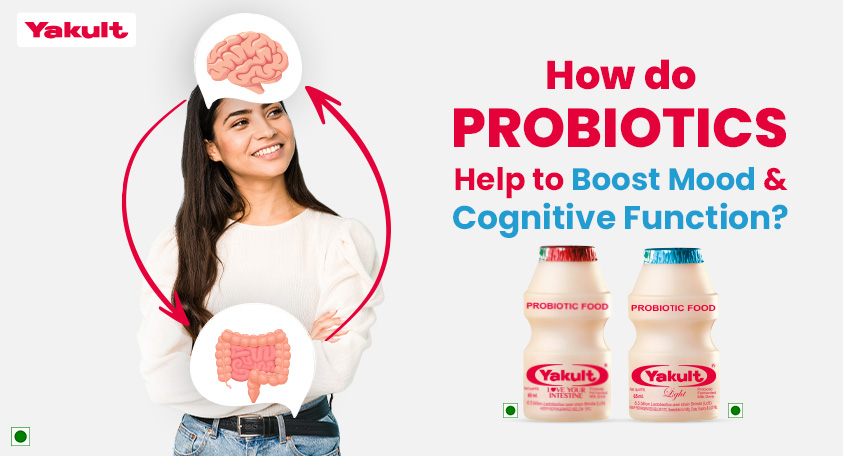For the last few years, I have been writing blogs on the gut, and its relation to gut related disorders. This time I am doing something different. I am going to talk about the connection of the gut with the brain.
The idea that there is a link between the gut and the brain is not new, it was introduced by Dr. George Potter Philips, in 1910. He observed that improving gut health, by consuming lactic acid bacteria, reduced depressive symptoms in adults.
The gut has also popularly been referred to as the second brain of the human body. This is because it houses the enteric nervous system, which has about 600 million neurons that produce 2/3rd of the same neurotransmitters, like serotonin, dopamine and gamma amino butyric acid (GABA), which are produced by the brain.
One of my favourite awareness campaigns, is to do with the fascinating “organ” lodged within the gut. I refer to the body of microbes that inhabit the gut. Their weight (nearly 2 kg) reminds us, that they have very important, largely unknown role, in the body.
If you take a moment to critically examine the gut brain connection, you will notice that whatever affects the gut, affects the brain and vice versa. Why is it that you feel butterflies in your stomach when you are nervous or excited, or a stressful event can cause a digestive problem, like an upset stomach.
This is because the gut and the brain are connected by the vagus nerve, the longest nerve in the body. New knowledge confirms that it is the gut microbes, which are the main drivers of the gut brain axis. They can communicate with the brain by influencing the secretion of different types of neurotransmitters, that may improve mood and reduce depression, or cause anxiety or pain. The secret lies in the kind of microbes, that are happily reside in the gut.
A popular study in Frontiers in Immunology in 2022, which included a total of 2,298 articles published between 1993 and 2022, showed that the presence of harmful bacteria in the gut may be associated with depression, anxiety, stress and even neurological disorders like Parkinsons’s disease and autism.
Most people suffer from stress on a regular basis, which affects their mood, and state of happiness. This is particularly seen among students, who are undertaking an examination or white-collar workers, who are constantly dealing with stressful jobs. They might experience poor digestive health and a loss of appetite, resulting in several health issues. In more severe cases, stress or anxiety can cause conditions like irritable bowel syndrome, with alternating symptoms of constipation or diarrhoea.
What makes probiotics so irresistible?
There is good reason for the spotlight to be on probiotics in gut brain connection. Studies from around the world, have shown that improving the balance of the gut microbes (increasing the probiotic bacteria,) can help boost mood and cognitive function, and lower stress and anxiety. Probiotics can increase the production of serotonin, the happy hormone, which is often present in very low levels, in depressed individuals.
What caught my attention, was a study conducted in Japan, by researchers at the Tokushima University, to study the gut brain connection. They found that medical students who consumed a probiotic fermented milk drink (LcS), for eight weeks, before the medical examination, suffered from less anxiety and stress, as compared to those who did not. In addition to lower levels of cortisol (stress hormone), the probiotic group also had lower infections (cold/ flu), and lesser abdominal discomfort.
Yet another study, published in the Journal of Gastroenterology, found that women who consumed a probiotic yoghurt for four weeks, were much calmer when exposed to intense stress, as compared to those who did not.
The elderly, who are at an increased risk of Alzheimer’s disease, benefitted by consuming a multi strain probiotic preparation for 12 weeks. An interesting observation was better cognitive function when they were tested. This study was published in Frontiers in Aging Neuroscience.
Statistics have shown that 1 in every 5 people, suffer from mental health issues, and 64- 70 million people in India, are silently suffering from poor mental health. This can start as early as fourteen (14) years of age and 75% of mental health conditions develop by the age twenty-four (24). It is believed that one in four people, are affected by mental illness, at some point in their lives. Alarmingly, there are almost eight million deaths every year, worldwide, due to mental disorders.
Probiotics may offer a ray of hope – not just for better gut health but better brain health as well. In addition, foods high in omega-3 fatty acids, such as fatty fish and walnuts, and antioxidants, including berries, broccoli, and pumpkin seeds, help support healthy brain function.
